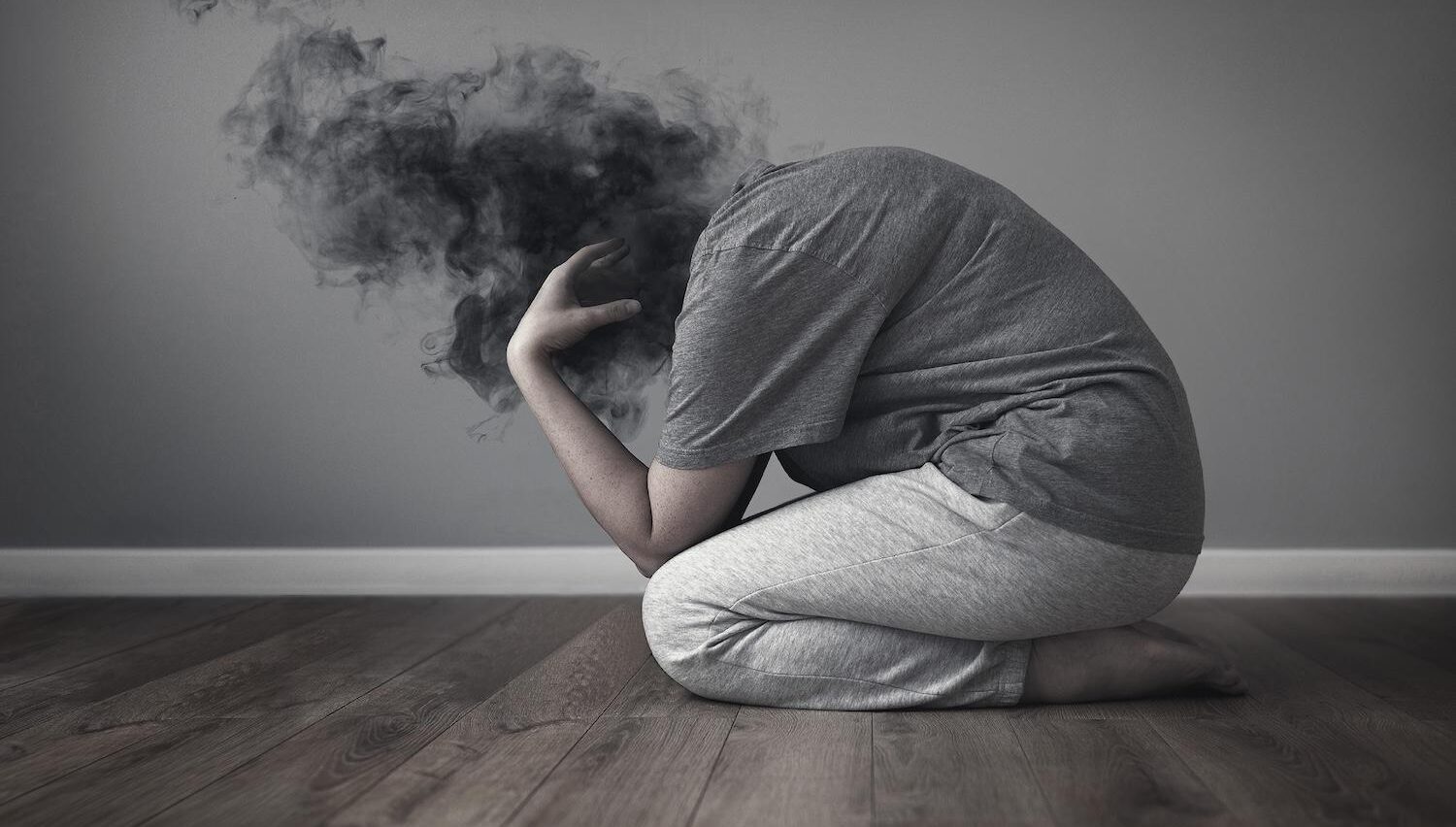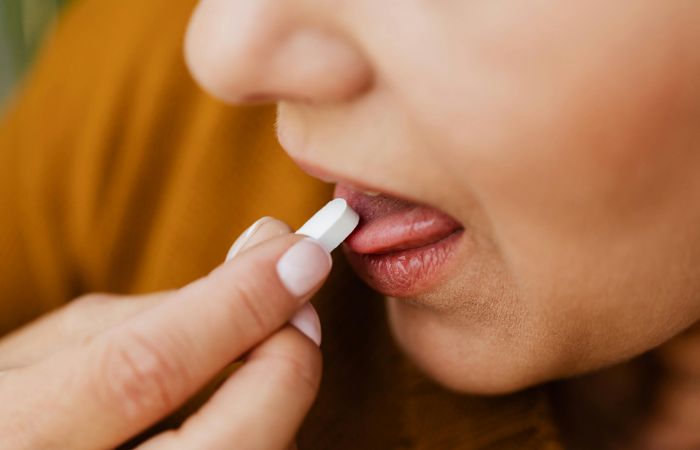Dealing with depression can be an uphill battle, and one common emotional burden that often accompanies it is the feeling of guilt. Depression guilt can be overwhelming, but there are effective ways to cope with it and regain a sense of control over your life. In this article, we’ll explore five strategies to help you navigate the challenging path of managing depression guilt. However, before we move on to the five strategies to deal with depression guilt, we will understand some of the basic questions people suffering from depression have which are as follows:
- Is guilt a sign of depression?
- Can guilt cause depression?
- How to Deal with Guilt and Depression?
- Can guilt of cheating cause depression?
Is Guilt a sign of Depression?
Guilt can be a symptom of depression, but it is not always present in every individual with depression. Depression is a complex mental health condition with a range of symptoms, and guilt is one of the emotional symptoms that some people with depression experience.
Guilt in the context of depression often involves feelings of self-blame, worthlessness, and remorse. People with depression may feel guilty about various aspects of their lives, such as their inability to function as they used to, the impact of their condition on loved ones, or even feeling guilty without a specific reason.
It’s essential to note that not everyone with depression will experience guilt, and the symptoms of depression can vary from person to person. If you or someone you know is struggling with depression, it is important to seek professional help from a mental health expert for a proper diagnosis and appropriate treatment. Depression is a treatable condition, and with the right support, many individuals can find relief and improve their mental well-being.
Can Guilt cause Depression?
Guilt, when experienced intensely and persistently, can contribute to the development or exacerbation of depression guilt. While guilt alone may not be the sole cause of depression, it can be a significant contributing factor, especially when it is linked to unresolved issues or traumatic experiences.
Here’s how guilt can be connected to depression:
- Negative Self-Perception: Feelings of guilt often involve self-blame and self-criticism. Over time, this negative self-perception can erode self-esteem and self-worth, contributing to the development of depressive symptoms.
- Rumination: Guilt can lead to rumination, where individuals repeatedly dwell on past mistakes or actions. This constant rumination on guilt can intensify negative emotions and lead to a sense of hopelessness and despair, which are common features of depression.
- Social Isolation: People burdened by guilt may withdraw from social interactions out of fear of being judged or rejected. Social isolation and loneliness are risk factors for depression.
- Physical Health Impact: Guilt and stress-related to it can take a toll on physical health. The interplay between physical and mental health can contribute to depressive symptoms.
- Interference with Coping Mechanisms: Guilt can interfere with healthy coping mechanisms and problem-solving, making it challenging for individuals to manage stress and life challenges effectively.
It’s important to understand that depression is a multifaceted condition, and its causes are often a combination of genetic, biological, environmental, and psychological factors. Guilt can be one of these contributing factors, particularly in cases where it is severe and long-lasting. Both depression and guilt are related but distinct concepts.
If you are experiencing intense guilt that is affecting your mental well-being, it’s advisable to seek professional help. Mental health professionals can provide therapy and support to address guilt-related issues and any underlying causes, ultimately helping you manage your emotional health more effectively.
How to Deal with Guilt and Depression?
Recognize Depression Guilt
The first step in dealing with depression guilt is to recognize and acknowledge it. This emotion often stems from irrational beliefs and negative self-talk. It’s crucial to understand that depression is an illness, and guilt shouldn’t be an additional weight on your shoulders. By recognizing and labeling these feelings as part of the depression, you can start to separate yourself from them.
Seek Professional Help
Dealing with depression guilt can be a complex and challenging process, and it’s essential not to go through it alone. Seeking professional help, such as therapy or counseling, is one of the most effective ways to address depression guilt. A mental health expert can provide guidance, support, and strategies tailored to your specific situation. They can help you challenge the negative thought patterns that lead to guilt and work on building a healthier self-perception.
Practice Self-Compassion
Depression often makes it difficult to be kind to yourself, but practicing self-compassion is a crucial aspect of overcoming depression guilt. Remind yourself that it’s okay to have bad days and that you are not to blame for your condition. Furthermore, use positive affirmations and self-compassionate language to counter negative thoughts. By treating yourself with kindness and understanding, you can go a long way in reducing feelings of guilt.
Build a Support System
Don’t underestimate the power of a strong support system in managing depression guilt. Reach out to friends and family members who can offer emotional support and understanding. Sharing your feelings with loved ones can help alleviate guilt as it allows you to express your emotions and gain a different perspective on your situation. Feeling supported and cared for can help combat the isolation that often accompanies depression.
Develop Coping Strategies
Developing effective coping strategies is crucial in dealing with depression guilt. Engage in activities that bring you joy and a sense of accomplishment, even on days when guilt is weighing you down. This might include hobbies, exercise, mindfulness, or relaxation techniques. Building a toolbox of coping strategies can help you manage guilt when it arises and regain a sense of control over your emotions.
Guilt can indeed contribute to the development or exacerbation of depression, and guilt related to cheating in a romantic relationship can be a particularly potent source of emotional distress. Cheating typically involves betrayal, dishonesty, and a breach of trust, which can lead to overwhelming feelings of guilt and remorse. These emotions can have a profound impact on an individual’s mental health.
Can guilt of cheating cause depression?
Guilt can be a powerful stressor, and when it becomes chronic or intense, it may lead to symptoms commonly associated with depression, such as:
- Persistent sadness or low mood
- Loss of interest in previously enjoyable activities
- Fatigue or low-energy
- Changes in appetite or weight
- Sleep disturbances
- Difficulty concentrating
- Feelings of worthlessness or excessive self-criticism
- Thoughts of self-harm or suicide
It’s important to note that depression is a complex mental health condition, and while guilt from cheating can be a contributing factor, it is rarely the sole cause. Other factors, such as genetic predisposition, previous mental health issues, life stressors, and social support, can also play a role.
If someone is struggling with guilt related to cheating and is experiencing symptoms of depression, it’s crucial to seek professional help. Providers, counselors, or mental health professionals can provide guidance and support to help individuals cope with their emotions, make amends if necessary, and work through the underlying issues that contributed to the cheating. Addressing both the guilt and the depression is essential for overall well-being and personal growth.
Conclusion
Dealing with depression guilt is a challenging aspect of managing depression, but it is not impossible. Recognizing depression guilt is an essential first step. Subsequently, seeking professional help can provide guidance and support tailored to your specific situation. Additionally, practicing self-compassion is crucial in managing this challenging emotion. Furthermore, building a strong support system can offer emotional assistance and a different perspective. Lastly, developing effective coping strategies is key.
Remember, you are not alone on this journey. Moreover, there are resources and people available to help you. Overcoming depression guilt is possible. Consequently, by implementing these strategies, you can regain control over your life and find relief from this burden. Don’t hesitate to reach out to mental health professionals and support networks. Therefore, you can gain guidance on your journey to recovery. Depression guilt does not define you; there is hope for a brighter future.




